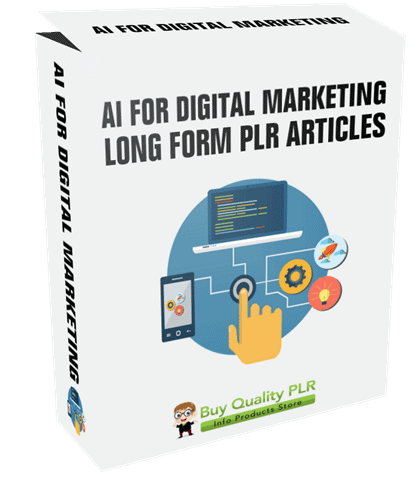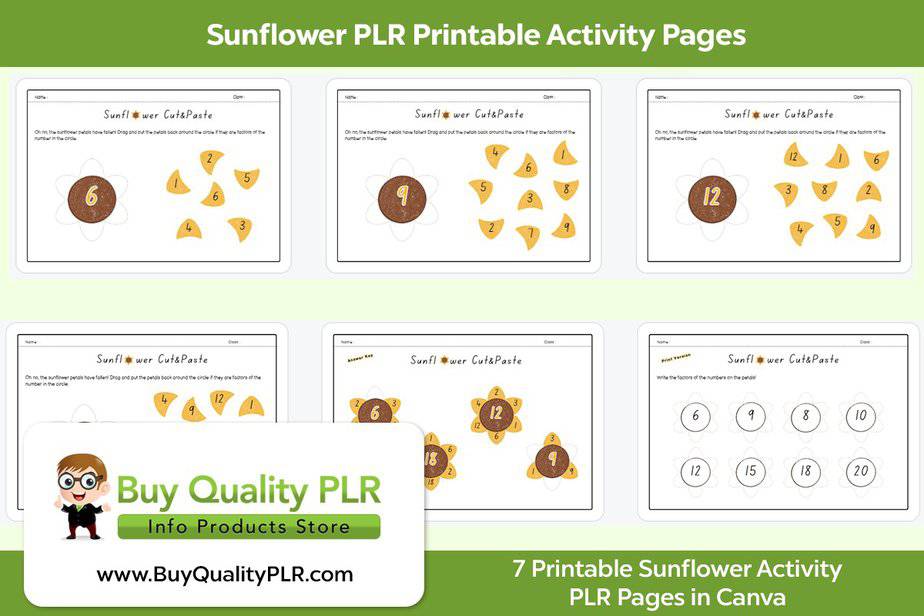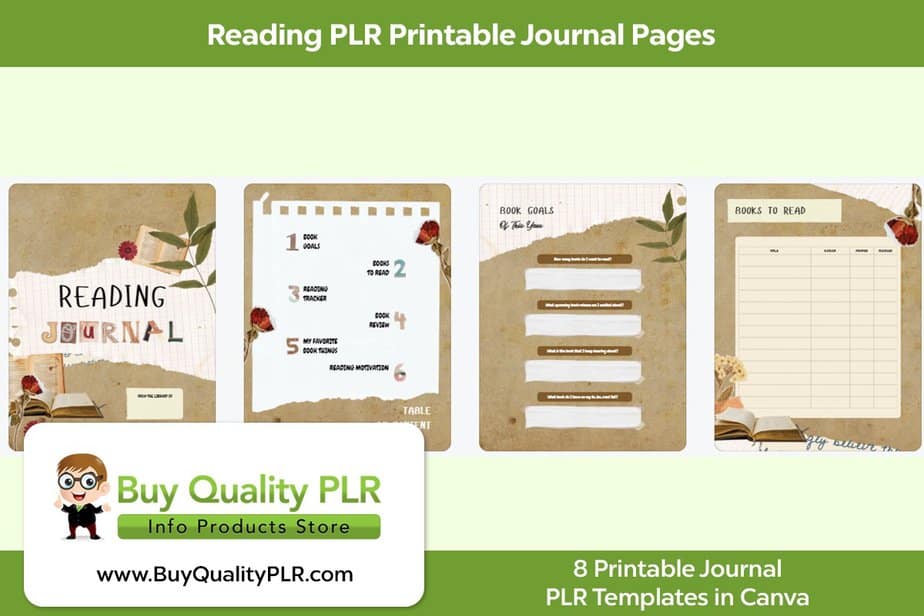
10 Long-form AI for Digital Marketing PLR Articles 30k Words
in Artificial intelligence PLR , Artificial Intelligence PLR Articles , Blogging PLR , Blogging PLR Articles , Business PLR , Business PLR Articles , Content Marketing PLR , Content Marketing PLR Articles , eCommerce , eCommerce PLR , Exclusive PLR , Featured PLR Products From Our Store , Internet Marketing PLR , Internet Marketing PLR Articles , Long Form PLR Articles , Marketing PLR Articles , Niche Marketing PLR , Online Business PLR , PLR Article Packs , PLR Articles , Private Label Rights ProductsChoose Your Desired Option(s)
has been added to your cart!
have been added to your cart!
#artificialintelligence #aifordigitalmarketing #aityechnology #marketingautomation #personalization #dataanalytics #virtualassistants #customerexperience #digitalstrategy #targetedadvertising #aiplr #aimarketing #aidigitalmarketing #digitalmarketingplr #artificialintelligenceplr
Are you tired of finding PLR articles that are only 500–800 words long and leave you underwhelmed by the amount of content provided?
Today, we have the perfect solution for you…
It’s called long-form PLR articles!
What are long-form PLR articles?
They are PLR articles that are over 2000 words each, and you can use them for pretty much anything you’d like, except sell them as PLR.
To see the license terms of our long-form PLR article packs, scroll to the bottom of this page.
has been added to your cart!
have been added to your cart!
Introducing 10 Long-form AI for Digital Marketing PLR Articles 30k Words

Here are the article titles and word count for each article:
- How AI is Transforming Digital Marketing Strategies (4195 words)
- AI-driven Chatbots: Enhancing Customer Engagement in Digital Marketing (3582 words)
- AI-Driven SEO: Maximizing Website Performance and Ranking Potential (3866 words )
- The Rise of AI in Video Marketing: How it Is Changing the Game (4626 words)
- The Benefits of AI in Driving Affiliate Marketing Conversions (4105 words)
- AI-driven Email Marketing: Improving ROI and Customer Retention (3947 words)
- Leveraging AI Technology for Blogging Success: Tips and Strategies (4042 words)
- The Power of AI in Personalizing Content for Marketing Success (3177 words)
- Using AI in Ecommerce: Enhancing Customer Experience and Increasing Sales (4687 words)
- AI Writing Assistants: Revolutionizing the Way We Create Content (3734 words)
Sample Article:
- Leveraging AI to Enhance Customer Engagement in Digital Marketing (4055 words)
All long-form PLR articles are provided in Word Doc format.
Here’s a sample article so you know what to expect and can see the quality of the long form PLR content before buying:
This is a sample long-form PLR article from https://www.buyqualityplr.com/plr-store/products/long-form-plr-articles/
Leveraging AI to Enhance Customer Engagement in Digital Marketing
Customer engagement is the most important part of digital marketing. And with the rapid advancements in technology, leveraging artificial intelligence (AI) has become a game-changer in enhancing that engagement.
AI is revolutionizing the way businesses interact with their customers by providing personalized recommendations, round-the-clock customer support, and automating various processes.
In this article, we will explore how businesses can harness the power of AI to create a more personalized and efficient customer experience.
So, let’s dive in and see how AI is transforming the landscape of digital marketing and customer engagement.
Introduction
Overview of AI in digital marketing
AI has revolutionized the field of digital marketing, enabling businesses to enhance customer engagement and deliver personalized experiences. By leveraging AI technologies, marketers can better understand customer preferences, optimize content, and automate interactions, resulting in more meaningful and effective engagement.
AI-powered customer segmentation and targeting allow marketers to identify and categorize customers based on their behaviors, interests, and demographics. This enables the delivery of targeted marketing messages and personalized offers, increasing the likelihood of engagement and conversions.
Furthermore, AI enables personalization and customization through advanced algorithms that can analyze large amounts of data to create tailored experiences for individual customers. This includes personalized product recommendations, dynamic content delivery, and customized marketing campaigns.
AI-driven content generation and optimization help marketers streamline their content creation process, ensuring high-quality and engaging content. Natural language processing algorithms can analyze customer sentiments and preferences, allowing marketers to deliver the most relevant content to their target audience.
Chatbots and virtual assistants have also become essential tools for customer interaction. AI-powered chatbots can provide instant support, answer customer queries, and guide them through the customer journey, enhancing engagement and customer satisfaction.
AI-driven customer analytics and predictive analytics help marketers gain deep insights into customer behavior, allowing them to predict customer preferences, anticipate their needs, and deliver personalized marketing experiences.
By leveraging sentiment analysis and social listening tools, marketers can monitor and analyze customer sentiments and feedback on social media, enabling them to better understand customer preferences and respond to their needs promptly.
Although AI offers significant opportunities to enhance customer engagement in digital marketing, it is essential to ensure ethical and responsible use of AI. Marketers must be transparent about the use of AI and respect customer privacy and data protection regulations.
Looking ahead, the future of AI in digital marketing holds immense potential. Advancements in AI technologies, such as natural language processing, computer vision, and deep learning, will further enhance customer engagement and deliver more personalized experiences.
Importance of customer engagement in digital marketing
Customer engagement is a crucial aspect of digital marketing as it directly impacts brand loyalty, customer satisfaction, and ultimately business success. Engaged customers are more likely to make repeat purchases, promote the brand through word-of-mouth, and become loyal advocates. They actively interact with the brand across different channels and are more open to providing feedback and valuable insights.
Here are some key reasons why customer engagement is important in digital marketing:
- Builds relationships: Engaging with customers creates a sense of connection and builds trust, fostering long-term relationships.
- Increases customer loyalty: Engaged customers are more likely to stay loyal to a brand, leading to increased customer retention and reduced churn.
- Drives brand advocacy: Engaged customers become brand advocates, sharing positive experiences with others and helping to expand the customer base.
- Improves customer satisfaction: Active engagement allows businesses to address customer concerns promptly and provide tailored solutions, enhancing overall satisfaction.
- Enhances customer insights: Engaged customers provide valuable feedback, preferences, and behavior data, enabling businesses to optimize marketing strategies and personalize experiences.
By using AI in digital marketing, businesses can enhance customer engagement through targeted and personalized experiences, real-time interactions, and data-driven insights. With AI-powered tools and techniques, brands can better understand and meet customer needs, establish a strong rapport, and create lasting relationships.
Understanding Customer Engagement
Definition and importance of customer engagement
Customer engagement refers to the interactions and connections that a customer has with a brand or business. It encompasses a wide range of activities, such as browsing a website, interacting with social media posts, participating in loyalty programs, providing feedback, and making purchases. Customer engagement is crucial for businesses as it directly impacts customer satisfaction, loyalty, and ultimately business performance.
When customers are engaged, they are more likely to spend more, make repeat purchases, refer others to the business, and become brand advocates. Engaged customers also provide valuable feedback and insights that businesses can use to improve their products, services, and overall customer experience.
By leveraging AI in digital marketing, businesses can enhance customer engagement by personalizing interactions, delivering relevant content, and providing seamless customer experiences. AI-powered tools analyze customer data, preferences, and behaviors to segment and target customers effectively.
AI-driven content generation and optimization ensure that customers receive tailored messages and offers. Chatbots and virtual assistants enable real-time customer interactions and support.
Predictive analytics and machine learning predict customer behavior, allowing businesses to proactively engage with customers and meet their needs.
Overall, by leveraging AI, businesses can establish meaningful customer relationships, foster loyalty, and drive long-term success.
Factors influencing customer engagement
Factors Influencing Customer Engagement:
- User Experience: The overall usability and design of a website or app greatly impact customer engagement. A smooth and intuitive interface enhances the user experience, encouraging them to stay longer and interact more with the brand.
- Relevant and Personalized Content: Tailoring content to individual preferences and needs demonstrates that a brand understands its customers. Personalized recommendations, customized emails, and targeted advertisements increase engagement by providing relevant information.
- Accessibility and Responsiveness: Customers appreciate brands that are easily accessible and responsive across different channels. Being present on multiple platforms and promptly addressing customer queries and concerns fosters engagement and loyalty.
- Social Proof: Social proof refers to the influence of other customers’ opinions and experiences. Positive reviews, testimonials, and social media mentions contribute to building trust, credibility, and ultimately, higher engagement.
- Emotional Connection: Customers are more likely to engage with brands they emotionally connect with. Storytelling, empathy, and social responsibility initiatives create a sense of connection, fostering long-term loyalty.
- Gamification: Incorporating gamification elements, such as rewards, challenges, and badges, adds an interactive and fun dimension to the customer experience. This engages customers and encourages them to interact more with the brand.
- Seamless Omnichannel Experience: Providing a consistent and seamless experience across various touchpoints, such as the website, app, social media, and offline stores, ensures a cohesive journey and increases engagement.
- Personalized Offers and Discounts: Offering exclusive discounts, personalized offers, and loyalty programs makes customers feel valued. This incentivizes engagement and helps build long-term relationships.
Remember, understanding and addressing these factors can greatly enhance customer engagement and loyalty, leading to a more successful digital marketing strategy.
III. Leveraging AI for Customer Engagement
Role of AI in enhancing customer engagement
AI plays a significant role in enhancing customer engagement in digital marketing. By leveraging advanced algorithms and machine learning, AI enables marketers to deliver highly personalized and relevant experiences to their customers.
Here are some key ways in which AI enhances customer engagement:
- Customer segmentation and targeting: AI-powered algorithms analyze vast amounts of customer data to identify patterns and behaviors, allowing marketers to segment their audience more accurately. This enables personalized targeting and messaging, improving the overall customer experience.
- Personalization and customization: AI algorithms can analyze customer preferences, behaviors, and purchase histories to deliver personalized content, recommendations, and offers. This level of customization enhances customer engagement and builds stronger relationships.
- Content generation and optimization: AI-powered tools can generate content, such as product descriptions or social media posts, that resonates with specific audience segments. AI algorithms can also optimize content strategies based on real-time customer data and feedback.
- Chatbots and virtual assistants: AI-powered chatbots and virtual assistants provide instant and personalized customer support, allowing businesses to engage with customers in real-time and offer tailored assistance.
- Customer analytics: AI algorithms can analyze vast amounts of customer data to understand customer behavior, preferences, and sentiments. This data-driven approach helps marketers make more informed decisions and engage customers more effectively.
Overall, AI enables businesses to create more personalized and engaging experiences, improving customer satisfaction, loyalty, and retention.
AI-powered customer segmentation and targeting
AI technology is revolutionizing the way businesses segment and target their customer base. Traditional methods of customer segmentation, such as demographics or purchase history, are no match for the sophisticated capabilities of AI. By analyzing vast amounts of data, AI algorithms can identify patterns and trends that human analysts may have missed, allowing businesses to create more accurate and effective customer segments.
AI enables businesses to understand their customers on a deeper level by uncovering hidden insights from multiple data sources, including social media, online behavior, and transactional data. With this information, businesses can create highly targeted marketing campaigns that resonate with specific segments, resulting in improved engagement and conversion rates.
In addition, AI can help personalize marketing messages and offers to individual customers based on their preferences, browsing history, and previous interactions. By delivering relevant and personalized content to customers, businesses can enhance customer engagement and create more meaningful connections.
Ultimately, AI-powered customer segmentation and targeting enable businesses to optimize marketing strategies, improve customer satisfaction, and drive growth. It is an invaluable tool in today’s digital marketing landscape, empowering businesses to deliver the right message to the right audience at the right time.
Personalization and customization through AI
Personalization and customization are crucial components of customer engagement in digital marketing, and AI plays a significant role in enhancing these aspects. AI-powered algorithms can analyze vast amounts of customer data to gain insights into individual preferences, behaviors, and interests. This information can then be used to tailor marketing messages, offers, and recommendations to each customer.
By leveraging AI, marketers can create highly personalized and relevant experiences for their audience, leading to improved customer satisfaction and conversion rates. AI can analyze customer data in real-time, allowing marketers to deliver timely and personalized content across various channels, including websites, email campaigns, and social media.
Furthermore, AI can automate the process of customizing content, such as dynamically generating product recommendations based on customer preferences or previous browsing history. AI algorithms can also optimize the content delivery process, ensuring that each customer receives the most relevant information at the right time.
Overall, personalization and customization through AI enable marketers to create tailored experiences that resonate with customers, leading to enhanced engagement and stronger relationships.
AI in Content Creation and Delivery
AI-driven content generation and optimization
AI-driven content generation and optimization is revolutionizing the way digital marketers create and optimize content to engage with their target audience. With AI, marketers can streamline the content creation process, improve relevance, and enhance customer engagement.
AI-powered tools can analyze vast amounts of data to identify patterns and trends, enabling marketers to generate content ideas that resonate with their audience. These tools also utilize natural language processing and machine learning algorithms to create high-quality, personalized content at scale.
Additionally, AI algorithms can optimize content for search engine optimization (SEO) by analyzing keywords, topic relevance, and user intent. This allows marketers to create content that not only appeals to their target audience but also ranks higher in search engine results pages.
AI-driven content optimization also includes the ability to analyze the performance of content in real-time, allowing marketers to make data-driven decisions and optimize content for better engagement. This means marketers can assess which headlines, images, and formats are resonating with their audience and make adjustments accordingly.
Overall, AI-driven content generation and optimization offer marketers an opportunity to create highly relevant, personalized, and engaging content that drives customer engagement and enhances the overall digital marketing strategy.
Dynamic content delivery and recommendation engines
One of the key ways AI enhances customer engagement in digital marketing is through dynamic content delivery and recommendation engines. These technologies leverage algorithms and machine learning to analyze customer data and preferences, enabling marketers to deliver personalized and relevant content to their target audience.
Dynamic content delivery involves tailoring website content, emails, and advertisements in real-time based on factors such as browsing behavior, demographics, and purchase history. This approach ensures that customers are presented with content that aligns with their interests, increasing the likelihood of engagement and conversion.
Recommendation engines, on the other hand, use AI algorithms to analyze customer behavior and provide personalized suggestions for products, services, or content. By leveraging data on past purchases or interactions, these engines can make accurate predictions about customer preferences and make recommendations that drive engagement and sales.
These AI-driven techniques not only enhance customer experience and satisfaction but also help marketers optimize their marketing strategies. By delivering the right content to the right audience at the right time, businesses can foster stronger relationships with their customers and drive long-term loyalty and engagement.
Chatbots and virtual assistants for customer interaction
Chatbots and virtual assistants are valuable tools for customer interaction in digital marketing. These AI-powered solutions offer automated and personalized customer support, helping businesses provide quick and efficient responses to customer queries and concerns.
Here are some key benefits of using chatbots and virtual assistants:
- 24/7 Availability: Chatbots and virtual assistants can be available around the clock, providing instant support to customers at any time.
- Improved Response Time: With AI, chatbots can understand and analyze customer queries in real-time, allowing them to provide accurate and prompt responses.
- Enhanced User Experience: Chatbots can engage customers in natural language conversations, making interactions more conversational and user-friendly.
- Cost Efficiency: By automating customer support, chatbots and virtual assistants can handle a large volume of queries simultaneously, reducing the need for human agents and lowering operational costs.
- Data Collection and Analysis: Chatbots can collect valuable customer data during interactions, enabling businesses to gain insights into customer preferences, behavior, and pain points.
While chatbots and virtual assistants offer numerous benefits, it is important to ensure that they are well-designed and properly trained to avoid potential pitfalls such as miscommunication or failure to understand complex queries. Additionally, businesses should consistently monitor and update their AI systems to align with changing customer expectations and preferences.
AI for Customer Analytics and Insights
AI-driven customer analytics for better understanding
AI-driven customer analytics play a crucial role in enhancing customer engagement in digital marketing. By analyzing vast amounts of data, AI algorithms can uncover valuable insights about customer behavior, preferences, and purchase patterns, enabling marketers to make data-driven decisions and tailor their strategies accordingly.
Through machine learning techniques, AI can identify key patterns and trends in customer data, allowing marketers to segment their audience into distinct groups and target them with personalized campaigns. This level of personalization can significantly improve customer engagement by delivering relevant content and offers that resonate with individual interests and needs.
Additionally, AI-powered analytics enable marketers to track and measure the effectiveness of their marketing efforts in real-time. By analyzing customer responses and interactions, they can gain a deeper understanding of what works and what doesn’t, allowing them to optimize their campaigns for better engagement and conversion rates.
Here are some key benefits of AI-driven customer analytics:
- Accurate customer segmentation: AI algorithms can identify distinct customer segments based on various factors such as demographics, purchase history, and online behavior.
- Predictive insights: AI can predict customer behavior and preferences, enabling marketers to anticipate their needs and provide personalized recommendations.
- Real-time monitoring: AI-powered analytics provide real-time insights, allowing marketers to track and respond to customer interactions and adjust their strategies accordingly.
- Improved customer experience: By understanding customer preferences and delivering tailored experiences, AI enhances the overall customer experience, leading to higher engagement and loyalty.
In this era of data-driven marketing, AI-driven customer analytics is a powerful tool that helps marketers gain a deep understanding of their customers’ needs, preferences, and behaviors, allowing them to create personalized experiences and drive better engagement in the digital marketing landscape.
Predictive analytics and machine learning for customer behavior prediction
Predictive analytics and machine learning play a crucial role in enhancing customer engagement in digital marketing. These AI-driven techniques analyze customer data and behavior patterns to predict future actions and preferences. By leveraging these insights, marketers can tailor their strategies to meet individual customer needs, resulting in more personalized and relevant interactions.
Through predictive analytics and machine learning, marketers can:
- Anticipate customer preferences and behavior, enabling them to provide targeted offers and recommendations.
- Identify potential churners and take proactive measures to retain them.
- Optimize marketing campaigns by predicting which channels and messaging will resonate most with each customer segment.
- Automate and optimize lead scoring, allowing sales teams to focus on the most valuable leads.
- Identify upselling and cross-selling opportunities based on customer buying patterns.
Overall, predictive analytics and machine learning empower marketers to make data-driven decisions, improve customer engagement, and deliver personalized experiences at scale. By understanding customer behavior and preferences in advance, marketers can anticipate their needs and enhance customer satisfaction.
Sentiment analysis and social listening
Sentiment analysis and social listening are two AI-powered techniques that can significantly enhance customer engagement in digital marketing.
Sentiment analysis involves the use of natural language processing (NLP) and machine learning algorithms to analyze and understand the sentiment behind customer conversations, reviews, social media posts, and other forms of online content. It helps marketers gain valuable insights into customer opinions, emotions, and preferences, allowing them to tailor their marketing strategies accordingly. By identifying positive or negative sentiment, marketers can respond to customer feedback, address concerns, and improve their products or services.
Social listening refers to monitoring and analyzing social media channels, blogs, forums, and other online platforms for mentions of a brand, industry, or specific topics. AI-powered tools can automatically track and analyze vast amounts of social data, helping marketers understand customer discussions, trends, and preferences in real-time. This information can be used to identify and engage with potential customers, monitor brand reputation, identify opportunities for product improvement, and stay ahead of competitors.
By leveraging sentiment analysis and social listening, businesses can gain a deeper understanding of their customers, identify emerging trends, and engage in meaningful conversations, leading to improved customer engagement and enhanced marketing strategies.
VII. Challenges and Ethical Considerations in AI-Powered Customer Engagement
Potential challenges and limitations of AI in customer engagement
When leveraging AI to enhance customer engagement in digital marketing, there are several potential challenges and limitations to be aware of:
- Data quality and privacy: AI relies heavily on data, and if the data used is of poor quality or contains biases, it can lead to inaccurate insights and decisions. Privacy concerns also arise when handling sensitive customer data.
- Lack of human touch: While AI can automate and personalize customer interactions, it may lack the human touch and empathy that some customers seek. This can negatively impact the customer experience.
- Overreliance on technology: Relying too heavily on AI can result in a loss of human intuition and creativity when interacting with customers. It’s important to find the right balance between automation and human involvement.
- Implementation and maintenance costs: Implementing and maintaining AI technologies can be expensive, especially for small businesses. The cost of training AI models, acquiring data, and hiring experts needs to be considered.
- Algorithmic biases: AI algorithms may unintentionally perpetuate biases present in the data they are trained on. These biases can result in discriminatory or unfair treatment of certain customer groups.
- Technical limitations: AI technologies are continually evolving, and there may be limitations or shortcomings in their capabilities. It’s important to stay updated on the latest advancements and understand the limitations of the AI tools being utilized.
Despite these challenges, with proper planning and responsible implementation, AI has the potential to greatly enhance customer engagement in digital marketing.
Ensuring ethical and responsible use of AI in marketing
Ensuring ethical and responsible use of AI in marketing
As AI becomes more prevalent in digital marketing, it is crucial to ensure its ethical and responsible use. Here are some considerations to keep in mind:
- Data privacy and security: Companies must prioritize the protection of customer data and comply with regulations such as GDPR. User consent and transparent data practices should be implemented.
- Transparency and explainability: AI algorithms should be transparent and explainable, meaning that customers should understand how their data is being used and have an understanding of the decision-making processes involved.
- Bias and fairness: AI algorithms should be designed to minimize bias and ensure fairness in customer engagement. Testing and monitoring should be conducted regularly to identify and rectify any biases that may arise.
- Human oversight: While AI can automate processes, human oversight is necessary to ensure that AI-driven decisions align with ethical standards and do not adversely impact customers.
- Educating and empowering customers: Companies should provide clear information to customers about the use of AI in their marketing efforts. Educating customers about AI and its benefits can foster trust and engagement.
By adhering to these principles, marketers can ensure that AI is used ethically and responsibly to enhance customer engagement while safeguarding customer privacy and maintaining trust.
VIII. Future Trends and Opportunities
Emerging trends in AI for customer engagement
Emerging trends in AI for customer engagement are shaping the future of digital marketing. These trends focus on leveraging AI technologies to enhance customer experiences and drive better engagement. Some of the key trends are:
- Personalized recommendations: AI-powered recommendation engines are becoming more sophisticated, allowing businesses to deliver personalized product recommendations to customers based on their browsing and purchase histories.
- Voice assistants and chatbots: Voice-enabled assistants and chatbots are becoming increasingly popular in customer service. AI-powered chatbots can handle customer queries, provide instant responses, and even assist with transactions, improving customer engagement and satisfaction.
- Hyper-targeted advertising: AI algorithms can analyze vast amounts of data to identify the most relevant target audience for advertising campaigns. This enables businesses to deliver highly targeted ads that resonate with customers, increasing engagement and conversion rates.
- Predictive analytics: AI algorithms can predict customer behavior based on historical data and patterns. This allows marketers to identify high-value customers, anticipate their needs, and personalize their experiences to drive better engagement and loyalty.
- Emotional AI: Emotional AI technologies can analyze emotions expressed in customer interactions, such as sentiment analysis and facial recognition. This enables businesses to better understand customer sentiments and tailor their marketing strategies accordingly.
- Augmented Reality (AR) and Virtual Reality (VR): AI-powered AR and VR technologies can enhance customer experiences by offering immersive and interactive content. This can be used in product demonstrations, virtual try-ons, and virtual tours, providing a unique engagement and brand experience.
These emerging trends show that AI is continually evolving and transforming the landscape of customer engagement in digital marketing. By embracing these trends, businesses can stay ahead of the curve and deliver personalized, engaging experiences to their customers.
Looking ahead to the future of AI in digital marketing
How AI will be used in digital marketing in the future
The future of AI in digital marketing holds immense potential for transforming customer engagement and driving business growth. With advancements in AI technology and algorithms, we can expect to see several key trends shaping the future:
- Hyper-personalization: AI will enable marketers to deliver highly targeted and personalized experiences to individual customers, leveraging vast amounts of data and real-time insights.
- Voice and visual search optimization: As voice assistants and visual search continue to gain popularity, AI will play a crucial role in optimizing content and ads for these emerging technologies.
- Augmented reality (AR) and virtual reality (VR): AI-powered AR and VR experiences will enhance customer engagement by providing immersive and interactive brand interactions.
- Real-time customer service: AI-powered chatbots and virtual assistants will become more sophisticated, providing seamless and personalized customer support in real-time.
- Predictive analytics: AI will continue to evolve in its ability to predict customer behavior and anticipate their needs, enabling businesses to proactively customize content and offerings.
- Ethical AI: With increasing concerns around data privacy and ethics, the future of AI in digital marketing will prioritize responsible use and transparency to build trust with customers.
By embracing these trends, businesses can leverage AI to create compelling customer experiences and gain a competitive edge in the digital marketing landscape.
This is a sample article from BuyQualityPLR.com.
You can find more long-form PLR articles here:
https://www.buyqualityplr.com/plr-store/products/long-form-plr-articles/
has been added to your cart!
have been added to your cart!
Here’s the truth about long-form content:
Google prefers long-form content; they just tend to rank better than shorter articles as they provide better, more detailed answers to people who search on Google.
And if you hired a copywriter to write 2000+ articles, they would charge you $3–$5 per 100 words ($60 per article), which is the going rate for long-form unique articles.
So, a pack of 10 articles of 20,000 words could easily cost you $600 if you hired a copywriter to write unique content for you.
But today, you won’t pay anything near that for these 10 Long-form AI for Digital Marketing PLR Articles .
These articles are available for $19.99; that’s $2 per article!
has been added to your cart!
have been added to your cart!
We are limiting these AI long-form PLR articles to the next 100 customers.
So, you’ve got to act fast if you’d like to get a PLR license to these PLR articles today; once 100 licenses are sold, we will be removing them from our store.
Ways You Can Use PLR Articles:
- Blog Posts: Publish PLR articles on your blog to provide valuable content to your readers and drive traffic to your website.
- Social Media Content: Break down PLR articles into shorter snippets and share them on your social media platforms to engage your audience.
- Email Newsletters: Adapt PLR articles for your email newsletters to keep your subscribers informed and provide them with valuable insights.
- Lead Magnets: Transform PLR articles into downloadable guides, reports, or ebooks to offer as lead magnets and grow your email list.
- Content Upgrades: Enhance existing blog posts with relevant PLR articles as content upgrades, providing additional value to your readers.
- Guest Blogging: Rewrite and customize PLR articles to submit as guest posts on other blogs, increasing your visibility and authority.
- Online Courses: Utilize PLR articles as content modules or lessons for creating online courses and sharing your expertise.
- Podcast Episodes: Convert PLR articles into podcast episodes by narrating the content and providing additional insights.
- Video Scripts: Adapt PLR articles into video scripts for creating informative and engaging videos for your YouTube channel or other video platforms.
- Compilation Books: Compile multiple related PLR articles into a comprehensive ebook or print book, offering it as a product or giveaway.
Package Details:
10 Long-form AI for Digital Marketing PLR Articles (Titles below)
How AI is Transforming Digital Marketing Strategies (4195 words)
AI-driven Chatbots: Enhancing Customer Engagement in Digital Marketing (3582 words)
AI-Driven SEO: Maximizing Website Performance and Ranking Potential (3866 words )
The Rise of AI in Video Marketing: How it Is Changing the Game (4626 words)
The Benefits of AI in Driving Affiliate Marketing Conversions (4105 words)
AI-driven Email Marketing: Improving ROI and Customer Retention (3947 words)
Leveraging AI Technology for Blogging Success: Tips and Strategies (4042 words)
The Power of AI in Personalizing Content for Marketing Success (3177 words)
Using AI in Ecommerce: Enhancing Customer Experience and Increasing Sales (4687 words)
AI Writing Assistants: Revolutionizing the Way We Create Content (3734 words)
Sample Article:
Leveraging AI to Enhance Customer Engagement in Digital Marketing (4055 words)
Total Word Count: (44 780 words)
Bonus Content
AI for Digital Marketing FAQs (764 words)
PLR License Terms:
What You Can Do:
- You can use this content on your blog.
- You can edit the content as you wish.
- You can use this content to create ebooks.
- You can use this content to create lead magnets.
- You can use this content to create video courses.
- You can use this content to create videos for YouTube.
- You can use this content to for content marketing.
- You can break the articles up into multiple articles.
- You can use the content for emails.
- You can use the content to create audios.
- You can sell the content in PDF format.
- You can use the content to create coaching courses.
- You can monetize the content with your affiliate links or own products.
- You can charge for access to read this content. For example, a paid ebook, membership site or other paid access content.
- You can translate the content into another language
- You can use the content anywhere you publish content
What you cannot do:
- You can sell PLR to this content.
- If you’re selling this content, it must be in PDF format.
- You CANNOT sell this product with a PLR, MRR or Resell Rights License.
has been added to your cart!
have been added to your cart!
Share Now!















